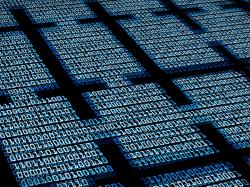Following A Tuna From Fiji To Brooklyn—On The Blockchain
May 22, 2018 | 1 min to read

I HAD JUST learned everything there was to know about the fish in front of me. Now a small part of its fleshy, red body was in my mouth. Five minutes earlier, I saw a video showing the waters in Fiji where it was caught, where it traveled on ice, and how exactly it ended up inside a sushi hand roll. The massive yellowfin tuna had been tracked across the globe via the Ethereum blockchain.
Each stop on the fish's journey, from the landing dock to the processing facility to the truck that drove it to Brooklyn, had been cataloged. The demonstration, organized by the startup Viant, was meant to showcase one of the potentially most compelling use cases for blockchain technology. A plethora of startups—as well as major companies like IBMand Walmart—are betting that the tech will change the way goods travel around the world.
A blockchain is essentially a distributed chain of data entries that everyone can view and that can't be easily altered. In other words, blockchains are digitized, more secure versions of the ledgers that merchants and traders have relied on for thousands of years.
To read the rest of the story, please go to: Wired
